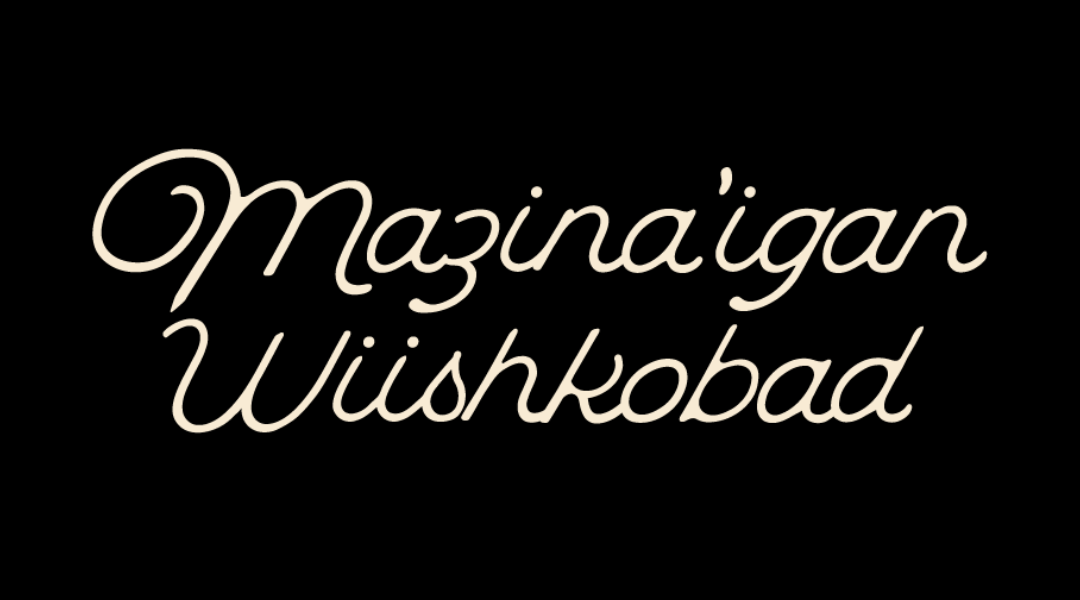At Booksweet, we engage with ongoing learning about Indigenous values, perspectives, and histories—and what it means to be white business owners on occupied land.
Booksweet and the City of Ann Arbor occupy the ancestral and contemporary lands of the Anishinaabe people—the Potawatomi, the Ojibwe, and the Odawa—and the Wyandot peoples. We believe that nurturing deep and ongoing learning about and connection to our community (past and present) can empower us in our work to co-create a future that supports flourishing and justice for all.
Last month Stacie Sheldon—a local picturebook author, co-founder of Ojibwe.net, and part of Booksweet’s School Author Visit Program—gifted Booksweet with a translation of our shop name in Anishinaabemowin: Mazina’igan Wiishkobad.
Learn how to pronounce the word with Stacie:
Poet and Anishinaabemowin language teacher Margaret Noodin provided some great info to help us understand the ways the language is applied:
“The first word, mazina’igan, is based on the idea of physical images or representations of an idea and is the word commonly used for book or paper,” Margaret says.
“The second part, wiishkobad, literally means “it is sweet.” Normally this refers to sweetness one can taste, but as with many languages, metaphors are flexible and the sweetness here is the time spent enjoying the words, stories and ideas of others as they are pressed into pages and found on our shelves.”
Decolonize your bookshelf //
There is something for everyone on our Indigenous Voices reading list, from sweet picture books for kids to super spooky horror for teens and adults.
During the month of November, Booksweet donates 10% of the sales from our Indigenous Voices reading list to the Burt Lake Band Healing Landscape and Building fund. Learn more about the Burt Lake Band at UMMA, where artist Andrea Carlson’s exhibition, Future Cache, dives into the is on view through June 2024. Future Cache commemorates the Cheboiganing (Burt Lake) Band of Ottawa and Chippewa Indians who were violently burned from their land in Northern Michigan on October 15, 1900. It asks those who have benefited from the legacies of colonization to consider where they stand and where to go from here and seeks to foster a sense of belonging for displaced Indigenous peoples fighting for restitution.
To give to the Burt Lake Band Healing Landscape and Building fund directly, please visit their GoFundMe page.
Miigwech! (Thank you!) Baamaapii! (See you later!)

